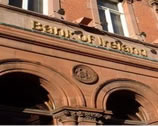

Ireland joined the single European currency on 1 January 1999, and the Republic's economy continues to grow while unemployment is falling.
Dublin is, like many modern cities, a thriving mix of service industries, traditional manufactures such as Guinness, W & R Jacob and the Smurfit Group, as well as the newer firms in electronics, software, pharmaceuticals, chemicals and other growth sectors. Dublin's leading business sectors are Automotive and Engineering, Software, Computers and Electronics, Food and Drink, Avionics, Printing and Paper.
Tourism provides a substantial number of jobs and although some of this is seasonal, Dublin is less affected by this seasonality on account of the number and variety of visitors the capital attracts throught the year.
Being the centre of Government, Dublin, through Government Civil Service administration jobs and the various semi-State organisations and Corporation and Council departments, is a huge white-collar employment area.
For both parts of Ireland, geography is still a barrier to prosperity. Located on the periphery of Europe, the island is isolated from its main markets and thus saddled with high transport costs. Fortunately, subsidies from the EU have helped improve the infrastructure in the Republic.
CHECK PRICES ON BASIC PRODUCTS